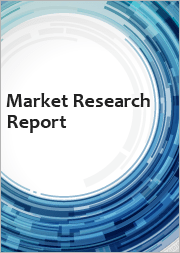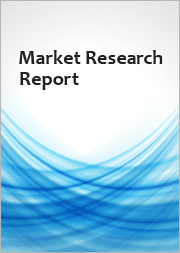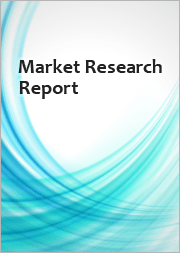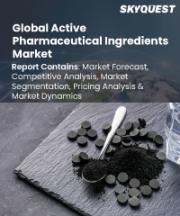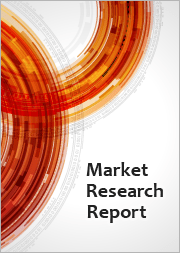
|
시장보고서
상품코드
1777252
펩티드 화장품용 API 시장 : 공급원, 용도, 최종사용자 산업, 지역별(-2035년)Global Peptide Cosmetic API Research Report by Source, by Application, by End-Use Industry, by Region Market Forecast till 2035 |
||||||
세계의 펩티드 화장품용 API 시장 규모는 2024년 9억 2,130만 달러에서 CAGR 11.2%로 추이하며, 2035년에는 29억 6,840만 달러로 성장할 것으로 예측되고 있습니다.
세계 펩티드 화장품 API 시장은 천연 및 유기농 미용 솔루션에 대한 소비자 수요 증가에 힘입어 강력한 성장세를 보이고 있습니다. 피부 안전과 지속가능성에 대한 인식이 높아짐에 따라 깨끗한 미용 기준에 부합하는 펩티드 기반 제품에 대한 관심이 높아지고 있습니다. 펩티드 합성의 급속한 기술 발전은 보다 안정적이고 효과적인 화장품 포뮬러의 창출을 가능하게 했습니다. 또한 개인별 피부 고민에 따른 맞춤형 스킨케어에 대한 니즈가 높아지면서 맞춤형 펩티드의 활용도가 높아지고 있습니다. 피부과학 연구의 발전으로 펩티드의 스킨케어 효능이 과학적으로 속속 입증되고 있으며, 시장에서의 채택이 더욱 가속화되고 있습니다.
하지만 시장에는 몇 가지 장벽이 있습니다. 높은 합성 및 제형화 비용, 제품의 안정성 및 전달 메커니즘의 문제, 제품 승인을 지연시킬 수 있는 복잡한 규제 프로세스 등이 있습니다. 또한 대체 유효성분과의 경쟁도 제약이 될 수 있습니다.
이러한 과제에도 불구하고 특히 바이오엔지니어링 펩티드, AI를 활용한 스킨케어, 남성 전용 안티에이징 제품, 멀티스텝 스킨케어 루틴, 펩티드 연구 혁신 등의 분야는 여전히 성장 가능성이 높습니다.
지역 분석
세계 펩티드 화장품용 API 시장에서는 북미가 선두를 달리고 있습니다. 이는 기능성과 안티에이징 효과에 대한 강한 관심, 널리 퍼진 소비자 인지도, 그리고 이미 확립된 스킨케어 브랜드의 존재에 기인합니다. 또한 첨단 연구 기반과 과학적 근거에 기반한 고급 제품을 선호하는 경향이 성장을 촉진하고 있습니다.
유럽 또한 중요한 시장 중 하나입니다. 클린 뷰티에 대한 수요와 엄격한 성분 규제, 독일, 프랑스, 영국의 안티에이징 시장의 호황이 시장 성장을 지원하고 있습니다.
아시아태평양에서는 K뷰티와 J뷰티의 영향, 급속한 도시화, 다기능 스킨케어를 선호하는 젊은 층의 존재가 중국, 일본, 한국 등의 급격한 성장을 가속하고 있습니다.
세계의 펩티드 화장품용 API 시장을 조사했으며, 시장의 정의와 개요, 시장 성장에 대한 각종 영향요인의 분석, 시장 규모 추이·예측, 각종 구분·지역/주요 국가별 내역, 경쟁 환경, 주요 기업의 개요 등을 정리하여 전해드립니다.
목차
제1장 개요
제2장 시장 개요
제3장 조사 방법
제4장 시장 역학
- 촉진요인
- 자연·오가닉 화장품의 수요 증가
- 펩티드 합성에서의 기술적 진보
- 맞춤형 스킨케어 솔루션에 대한 관심의 증가
- 피부과에서 펩티드 효능에 관한 연구의 확대
- 억제요인
- 펩티드 합성과 제제화의 고비용
- 안정성과 배송의 과제
- 규제의 복잡성과 승인 지연
- 대체 유효 성분과의 경쟁
- 기회
- 클린 뷰티에서의 바이오엔지니어링 펩티드
- AI 구동형 퍼스널라이즈 스킨케어
- 멀티 스텝 스킨케어 레지멘에서의 펩티드
- 맨즈 그루밍과 안티에이징 솔루션
- 펩티드 연구에서의 혁신
- COVID-19의 영향 분석
제5장 시장 요인 분석
- 공급망 분석
- Porter's Five Forces 모델
제6장 펩티드 화장품용 API 시장 : 용도별
- 안티에이징과 주름 경감
- 피부 수복과 재생
- 보습과 수분 보급
- 화이트닝 & 브라이트닝
- 헤어케어
- 항염증 작용과 진정 작용
제7장 펩티드 화장품용 API 시장 : 공급원별
- 식물 유래 펩티드
- 동물 유래 펩티드
- 바이오엔지니어링 펩티드
- 화학 합성
제8장 펩티드 화장품용 API 시장 : 최종사용자 산업별
- 스킨케어
- 헤어케어
- 주입형 화장품
- 기타
제9장 펩티드 화장품용 API 시장 : 지역별
- 개요
- 북미
- 미국
- 캐나다
- 유럽
- 독일
- 영국
- 프랑스
- 러시아
- 이탈리아
- 스페인
- 기타
- 아시아태평양
- 중국
- 인도
- 일본
- 한국
- 말레이시아
- 태국
- 인도네시아
- 기타
- 남미
- 브라질
- 멕시코
- 아르헨티나
- 기타
- MEA
- GCC 국가
- 남아프리카공화국
- 기타
제10장 경쟁 구도
- 시장 점유율 분석
- 경쟁 대시보드
제11장 기업 개요
- DSM-FIRMENICH
- BACHEM
- LIPOTRUE SCIENCE
- CRODA
- CAREGEN
- BASF SE
- EVONIK INDUSTRIES AG
- GIVAUDAN ACTIVE BEAUTY
- ASHLAND GLOBAL HOLDINGS
- SYMRISE AG
- PROVITAL GROUP
- SPEC-CHEM INDUSTRY INC
- AMBIOPHARM
- LIPOTEC
- USV PRIVATE LIMITED
- CHEMISCHES LABORATORIUM DR. KURT RICHTER GMBH(CLR)
- ACTIVE PEPTIDE COMPANY
- SEIWA KASEI CO., LTD
- RS SYNTHESIS
- BCN PEPTIDES
Global Peptide Cosmetic API Research Report by Source (Plant-Derived Peptides, Animal-Derived Peptides, Bioengineered Peptides, Chemically Synthesized), by Application (Anti-Aging & Wrinkle Reduction, Skin Repair & Regeneration, Moisturizing & Hydration, Whitening & Brightening, Hair Care, Anti-Inflammatory & Soothing), by End-Use Industry (Skincare, Haircare, Injectable Cosmetics, Others), by Region (North America, Europe, APAC, South America, MEA) Market Forecast till 2035
Industry Overview
The global peptide cosmetic API market is expected to achieve from its 2024 estimate of USD 921.3 million to USD 2,968.4 million by 2035 at a compound annual growth rate (CAGR) of 11.2%.
Global peptide cosmetic API market is witnessing robust growth, largely fueled by increasing consumer demand for natural and organic beauty solutions. As people become more conscious of skin safety and sustainability, they are turning to peptide-based products that align with clean beauty standards. Rapid technological progress in peptide synthesis has enabled the creation of more stable and effective cosmetic formulations. Moreover, the rising inclination toward personalized skincare regimens has boosted the use of peptides, which can be customized for targeted skin concerns. Expanding dermatological research continues to validate the efficacy of peptides in skincare, further promoting their market adoption.
Nevertheless, the market does encounter several barriers. These include the high cost of synthesis and formulation, challenges in product stability and delivery mechanisms, and complex regulatory processes that can delay product approvals. Competition from alternative active ingredients also poses limitations.
Despite these challenges, growth prospects remain strong, especially in areas like bioengineered peptides, AI-driven skincare, male-focused anti-aging products, multi-step skincare routines, and peptide research innovations.
Industry Segmentations
Based on the application category, the global market is included anti-aging & wrinkle reduction, skin repair & regeneration, moisturizing & hydration, whitening & brightening, hair care, anti-inflammatory & soothing.
Chemically synthesized, plant-derived, animal-derived, and bioengineered peptides are all included in the global peptide cosmetic API market, which is divided by source type.
In terms of end-use variation, the global market is segmented into Skincare, haircare, injectable cosmetics, and others.
Regional Analysis
The global peptide cosmetic API market sees North America leading, thanks to widespread awareness, established skincare brands, and strong interest in functional, anti-aging solutions. Advanced research infrastructure and preference for premium, science-led products are key growth enablers.
Europe is a significant player as well, shaped by clean beauty demand, robust ingredient regulations, and a thriving anti-aging sector in Germany, France, and the UK.
Asia-Pacific is experiencing rapid growth, influenced by K-beauty and J-beauty, surging urbanization, and a young population inclined toward multifunctional skincare in China, Japan, and South Korea.
Latin America is gaining traction, primarily due to Brazil's expanding market for natural and anti-aging cosmetics.
Meanwhile, growth in the Middle East & Africa remains moderate but promising, supported by increasing disposable income and urban expansion.
Key Players
Key competitors of global peptide cosmetic API research report are Chemisches Laboratorium Dr. Kurt Richter GmbH, DSM-Firmenich, Provital Group, Bachem, Lipotrue Science, Croda, Caregen, BASF SE, Evonik Industries AG, Givaudan Active Beauty, Ashland Global Holdings, Symrise AG, Spec-Chem Industry Inc, Ambiopharm, Lipotec, USV Private Limited, Active Peptide Company, Seiwa Kasei Co. Ltd., RS Synthesis, BCN Peptides.
TABLE OF CONTENTS
1 EXECUTIVE SUMMARY
2 MARKET INTRODUCTION
- 2.1 DEFINITION
- 2.2 SCOPE OF THE STUDY
- 2.3 RESEARCH OBJECTIVE
- 2.4 MARKET STRUCTURE
3 RESEARCH METHODOLOGY
- 3.1 OVERVIEW
- 3.2 DATA FLOW
- 3.2.1 DATA MINING PROCESS
- 3.3 PURCHASED DATABASE:
- 3.4 SECONDARY SOURCES:
- 3.4.1 SECONDARY RESEARCH DATA FLOW:
- 3.5 PRIMARY RESEARCH:
- 3.5.1 PRIMARY RESEARCH DATA FLOW:
- 3.5.2 PRIMARY RESEARCH: NUMBER OF INTERVIEWS CONDUCTED
- 3.5.3 PRIMARY RESEARCH: REGIONAL COVERAGE
- 3.6 APPROACHES FOR MARKET END USER ESTIMATION:
- 3.6.1 REVENUE ANALYSIS APPROACH
- 3.6.2 DATA FORECASTING
- 3.6.3 DATA FORECASTING TECHNIQUE
- 3.7 DATA MODELING
- 3.7.1 MICROECONOMIC FACTOR ANALYSIS:
- 3.7.2 DATA MODELING:
- 3.8 TEAMS AND ANALYST CONTRIBUTION
4 MARKET DYNAMICS
- 4.1 INTRODUCTION
- 4.2 DRIVERS
- 4.2.1 INCREASING DEMAND FOR NATURAL AND ORGANIC COSMETICS
- 4.2.2 TECHNOLOGICAL ADVANCEMENTS IN PEPTIDE SYNTHESIS
- 4.2.3 GROWING PREFERENCE FOR PERSONALIZED SKINCARE SOLUTIONS
- 4.2.4 EXPANDING RESEARCH ON PEPTIDE BENEFITS IN DERMATOLOGY
- 4.3 RESTRAINTS
- 4.3.1 HIGH COST OF PEPTIDE SYNTHESIS AND FORMULATION
- 4.3.2 STABILITY AND DELIVERY CHALLENGES
- 4.3.3 REGULATORY COMPLEXITIES AND APPROVAL DELAYS
- 4.3.4 COMPETITION FROM ALTERNATIVE ACTIVE INGREDIENTS
- 4.4 OPPORTUNITY
- 4.4.1 BIOENGINEERED PEPTIDES IN CLEAN BEAUTY
- 4.4.2 AI-DRIVEN PERSONALIZED SKINCARE
- 4.4.3 PEPTIDES IN MULTI-STEP SKINCARE REGIMENS
- 4.4.4 MEN'S GROOMING AND ANTI-AGING SOLUTIONS
- 4.4.5 INNOVATIONS IN PEPTIDE RESEARCH
- 4.5 IMPACT ANALYSIS OF COVID - 19
- 4.5.1 IMPACT 0N OVERALL HEALTHCARE.
- 4.5.2 ECONOMIC IMPACT.
- 4.5.3 IMPACT ON GLOBAL PEPTIDE COSMETIC API MARKET MARKET.
- 4.5.4 IMPACT ON SUPPLY CHAIN OF PEPTIDE COSMETIC API MARKET
- 4.5.5 PRICE VARIATION OF KEY RAW MATERIALS.
- 4.5.6 PRODUCTION SHUTDOWN.
- 4.5.7 CASH FLOW CONSTRAINTS.
- 4.5.8 IMPACT ON IMPORT/EXPORT.
- 4.5.9 IMPACT ON MARKET DEMAND OF PEPTIDE COSMETIC API MARKET.
- 4.5.10 IMPACT DUE TO RESTRICTIONS/LOCKDOWN.
- 4.5.11 CONSUMER SENTIMENTS.
- 4.5.12 IMPACT ON PRICING OF PEPTIDE COSMETIC API MARKET.
5 MARKET FACTOR ANALYSIS
- 5.1 SUPPLY CHAIN ANALYSIS
- 5.1.1 RAW MATERIAL PROCUREMENT
- 5.1.2 MANUFACTURING & SYNTHESIS
- 5.1.3 PACKAGING AND STORAGE
- 5.1.4 DISTRIBUTION & LOGISTICS
- 5.1.5 END-USERS & CONSUMER DELIVERY
- 5.2 PORTER'S FIVE FORCES MODEL
- 5.2.1 BARGAINING POWER OF SUPPLIERS
- 5.2.2 BARGAINING POWER OF BUYERS
- 5.2.3 THREAT OF NEW ENTRANTS
- 5.2.4 THREAT OF SUBSTITUTES
- 5.2.5 INTENSITY OF RIVALRY
6 PEPTIDE COSMETIC API MARKET, BY APPLICATION
- 6.1 INTRODUCTION
- 6.2 ANTI-AGING & WRINKLE REDUCTION
- 6.3 SKIN REPAIR & REGENERATION
- 6.4 MOISTURIZING & HYDRATION
- 6.5 WHITENING & BRIGHTENING
- 6.6 HAIR CARE
- 6.7 ANTI-INFLAMMATORY & SOOTHING
7 PEPTIDE COSMETIC API MARKET, BY SOURCE
- 7.1 INTRODUCTION
- 7.2 PLANT-DERIVED PEPTIDES
- 7.3 ANIMAL-DERIVED PEPTIDES
- 7.4 BIOENGINEERED PEPTIDES
- 7.5 CHEMICALLY SYNTHESIZED
8 PEPTIDE COSMETIC API MARKET, BY END-USE INDUSTRY
- 8.1 INTRODUCTION
- 8.2 SKINCARE
- 8.3 HAIRCARE
- 8.4 INJECTABLE COSMETICS
- 8.5 OTHERS
9 PEPTIDE COSMETIC API MARKET, BY REGION
- 9.1 OVERVIEW
- 9.2 NORTH AMERICA
- 9.2.1 US
- 9.2.2 CANADA
- 9.3 EUROPE
- 9.3.1 GERMANY
- 9.3.2 UK
- 9.3.3 FRANCE
- 9.3.4 RUSSIA
- 9.3.5 ITALY
- 9.3.6 SPAIN
- 9.3.7 REST OF EUROPE
- 9.4 APAC
- 9.4.1 CHINA
- 9.4.2 INDIA
- 9.4.3 JAPAN
- 9.4.4 SOUTH KOREA
- 9.4.5 MALAYSIA
- 9.4.6 THAILAND
- 9.4.7 INDONESIA
- 9.4.8 REST OF APAC
- 9.5 SOUTH AMERICA
- 9.5.1 BRAZIL
- 9.5.2 MEXICO
- 9.5.3 ARGENTINA
- 9.5.4 REST OF SOUTH AMERICA
- 9.6 MEA
- 9.6.1 GCC COUNTRIES
- 9.6.2 SOUTH AFRICA
- 9.6.3 REST OF MEA
10 COMPETITIVE LANDSCAPE
- 10.1 INTRODUCTION
- 10.2 MARKET SHARE ANALYSIS, 2023
- 10.3 COMPETITOR DASHBOARD
11 COMPANY PROFILES
- 11.1 DSM-FIRMENICH
- 11.1.1 COMPANY OVERVIEW
- 11.1.2 FINANCIAL OVERVIEW
- 11.1.3 TYPES OFFERED
- 11.1.4 PATENT DETAILS
- 11.1.5 PRODUCTION CAPACITY
- 11.1.6 SALES VOLUME
- 11.1.7 PRICING ANALYSIS
- 11.1.8 SWOT ANALYSIS
- 11.1.9 KEY STRATEGY
- 11.2 BACHEM
- 11.2.1 COMPANY OVERVIEW
- 11.2.2 FINANCIAL OVERVIEW
- 11.2.3 TYPES OFFERED
- 11.2.4 PATENT DETAILS
- 11.2.5 PRODUCTION CAPACITY
- 11.2.6 SALES VOLUME
- 11.2.7 PRICING ANALYSIS
- 11.2.8 SWOT ANALYSIS
- 11.2.9 KEY STRATEGY
- 11.3 LIPOTRUE SCIENCE
- 11.3.1 COMPANY OVERVIEW
- 11.3.2 TYPES OFFERED
- 11.3.3 PATENT DETAILS
- 11.3.4 PRODUCTION CAPACITY
- 11.3.5 SALES VOLUME
- 11.3.6 PRICING ANALYSIS
- 11.3.7 SWOT ANALYSIS
- 11.3.8 KEY STRATEGY
- 11.4 CRODA
- 11.4.1 COMPANY OVERVIEW
- 11.4.2 FINANCIAL OVERVIEW
- 11.4.3 TYPES OFFERED
- 11.4.4 PATENT DETAILS
- 11.4.5 PRODUCTION CAPACITY
- 11.4.6 SALES VOLUME
- 11.4.7 PRICING ANALYSIS
- 11.4.8 SWOT ANALYSIS
- 11.4.9 KEY STRATEGY
- 11.5 CAREGEN
- 11.5.1 COMPANY OVERVIEW
- 11.5.2 TYPES OFFERED
- 11.5.3 PATENT DETAILS
- 11.5.4 PRODUCTION CAPACITY
- 11.5.5 SALES VOLUME
- 11.5.6 PRICING ANALYSIS
- 11.5.7 SWOT ANALYSIS
- 11.5.8 KEY STRATEGY
- 11.6 BASF SE
- 11.6.1 COMPANY OVERVIEW
- 11.6.2 FINANCIAL OVERVIEW
- 11.6.3 TYPES OFFERED
- 11.6.4 PATENT DETAILS
- 11.6.5 PRODUCTION CAPACITY
- 11.6.6 SALES VOLUME
- 11.6.7 PRICING ANALYSIS
- 11.6.8 SWOT ANALYSIS
- 11.6.9 KEY STRATEGY
- 11.7 EVONIK INDUSTRIES AG
- 11.7.1 COMPANY OVERVIEW
- 11.7.2 FINANCIAL OVERVIEW
- 11.7.3 TYPES OFFERED
- 11.7.4 PATENT DETAILS
- 11.7.5 PRODUCTION CAPACITY
- 11.7.6 SALES VOLUME
- 11.7.7 PRICING ANALYSIS
- 11.7.8 SWOT ANALYSIS
- 11.7.9 KEY STRATEGY
- 11.8 GIVAUDAN ACTIVE BEAUTY
- 11.8.1 COMPANY OVERVIEW
- 11.8.2 FINANCIAL OVERVIEW
- 11.8.3 TYPES OFFERED
- 11.8.4 PATENT DETAILS
- 11.8.5 PRODUCTION CAPACITY
- 11.8.6 SALES VOLUME
- 11.8.7 PRICING ANALYSIS
- 11.8.8 SWOT ANALYSIS
- 11.8.9 KEY STRATEGY
- 11.9 ASHLAND GLOBAL HOLDINGS
- 11.9.1 COMPANY OVERVIEW
- 11.9.2 FINANCIAL OVERVIEW
- 11.9.3 TYPES OFFERED
- 11.9.4 PATENT DETAILS
- 11.9.5 PRODUCTION CAPACITY
- 11.9.6 SALES VOLUME
- 11.9.7 PRICING ANALYSIS
- 11.9.8 SWOT ANALYSIS
- 11.9.9 KEY STRATEGY
- 11.10 SYMRISE AG
- 11.10.1 COMPANY OVERVIEW
- 11.10.2 FINANCIAL OVERVIEW
- 11.10.3 TYPES OFFERED
- 11.10.4 PATENT DETAILS
- 11.10.5 PRODUCTION CAPACITY
- 11.10.6 SALES VOLUME
- 11.10.7 PRICING ANALYSIS
- 11.10.8 SWOT ANALYSIS
- 11.10.9 KEY STRATEGY
- 11.11 PROVITAL GROUP
- 11.11.1 COMPANY OVERVIEW
- 11.11.2 TYPES OFFERED
- 11.11.3 PATENT DETAILS
- 11.11.4 PRODUCTION CAPACITY
- 11.11.5 SALES VOLUME
- 11.11.6 PRICING ANALYSIS
- 11.11.7 SWOT ANALYSIS
- 11.11.8 KEY STRATEGY
- 11.12 SPEC-CHEM INDUSTRY INC
- 11.12.1 COMPANY OVERVIEW
- 11.12.2 TYPES OFFERED
- 11.12.3 PATENT DETAILS
- 11.12.4 PRODUCTION CAPACITY
- 11.12.5 SALES VOLUME
- 11.12.6 PRICING ANALYSIS
- 11.12.7 SWOT ANALYSIS
- 11.12.8 KEY STRATEGY
- 11.13 AMBIOPHARM
- 11.13.1 COMPANY OVERVIEW
- 11.13.2 TYPES OFFERED
- 11.13.3 PATENT DETAILS
- 11.13.4 PRODUCTION CAPACITY
- 11.13.5 SALES VOLUME
- 11.13.6 PRICING ANALYSIS
- 11.13.7 SWOT ANALYSIS
- 11.13.8 KEY STRATEGY
- 11.14 LIPOTEC
- 11.14.1 COMPANY OVERVIEW
- 11.14.2 TYPES OFFERED
- 11.14.3 PATENT DETAILS
- 11.14.4 PRODUCTION CAPACITY
- 11.14.5 SALES VOLUME
- 11.14.6 PRICING ANALYSIS
- 11.14.7 SWOT ANALYSIS
- 11.14.8 KEY STRATEGY
- 11.15 USV PRIVATE LIMITED
- 11.15.1 COMPANY OVERVIEW
- 11.15.2 TYPES OFFERED
- 11.15.3 PATENT DETAILS
- 11.15.4 PRODUCTION CAPACITY
- 11.15.5 SALES VOLUME
- 11.15.6 PRICING ANALYSIS
- 11.15.7 SWOT ANALYSIS
- 11.15.8 KEY STRATEGY
- 11.16 CHEMISCHES LABORATORIUM DR. KURT RICHTER GMBH (CLR)
- 11.16.1 COMPANY OVERVIEW
- 11.16.2 TYPES OFFERED
- 11.16.3 PATENT DETAILS
- 11.16.4 PRODUCTION CAPACITY
- 11.16.5 SALES VOLUME
- 11.16.6 PRICING ANALYSIS
- 11.16.7 SWOT ANALYSIS
- 11.16.8 KEY STRATEGY
- 11.17 ACTIVE PEPTIDE COMPANY
- 11.17.1 COMPANY OVERVIEW
- 11.17.2 TYPES OFFERED
- 11.17.3 PATENT DETAILS
- 11.17.4 PRODUCTION CAPACITY
- 11.17.5 SALES VOLUME
- 11.17.6 PRICING ANALYSIS
- 11.17.7 SWOT ANALYSIS
- 11.17.8 KEY STRATEGY
- 11.18 SEIWA KASEI CO., LTD
- 11.18.1 COMPANY OVERVIEW
- 11.18.2 TYPES OFFERED
- 11.18.3 PATENT DETAILS
- 11.18.4 PRODUCTION CAPACITY
- 11.18.5 SALES VOLUME
- 11.18.6 PRICING ANALYSIS
- 11.18.7 SWOT ANALYSIS
- 11.18.8 KEY STRATEGY
- 11.19 RS SYNTHESIS
- 11.19.1 COMPANY OVERVIEW
- 11.19.2 TYPES OFFERED
- 11.19.3 PATENT DETAILS
- 11.19.4 PRODUCTION CAPACITY
- 11.19.5 SALES VOLUME
- 11.19.6 PRICING ANALYSIS
- 11.19.7 SWOT ANALYSIS
- 11.19.8 KEY STRATEGY
- 11.20 BCN PEPTIDES
- 11.20.1 COMPANY OVERVIEW
- 11.20.2 TYPES OFFERED
- 11.20.3 PATENT DETAILS
- 11.20.4 PRODUCTION CAPACITY
- 11.20.5 SALES VOLUME
- 11.20.6 PRICING ANALYSIS
- 11.20.7 SWOT ANALYSIS
- 11.20.8 KEY STRATEGY






